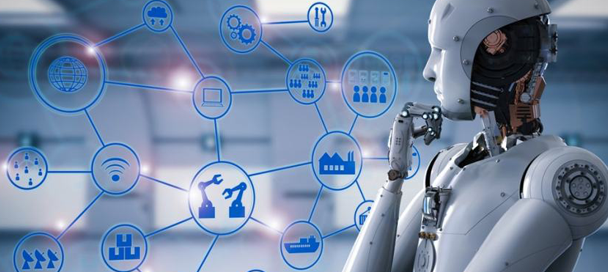Artificial Intelligence (AI) solutions are transforming the modern world by offering advanced tools and technologies that enable businesses to enhance productivity, optimize processes, and innovate across industries. AI solutions span a wide range of applications, from automation and data analysis to customer engagement and personalized services. By leveraging AI’s ability to learn, adapt, and improve over time, companies can gain a competitive edge and drive significant growth.
What Are Artificial Intelligence Solutions?
Artificial Intelligence solutions refer to software or systems that incorporate AI technologies such as machine learning, deep learning, natural language processing, and computer vision. These solutions are designed to solve complex problems, automate routine tasks, and provide data-driven insights. AI solutions can be applied to various domains, including healthcare, finance, retail, manufacturing, and more, allowing businesses to streamline operations, reduce costs, and improve decision-making.
Key AI Technologies Powering AI Solutions
Several core AI technologies enable the development and deployment of AI solutions. These include:
1. Machine Learning (ML)
Machine learning is a subset of AI that enables systems to learn from data and improve over time without being explicitly programmed. ML algorithms can analyze large datasets, recognize patterns, and make predictions or decisions based on historical data. Machine learning is widely used in recommendation systems, fraud detection, and predictive maintenance.
2. Natural Language Processing (NLP)
NLP allows machines to understand, interpret, and generate human language. This technology powers chatbots, voice assistants, sentiment analysis tools, and other language-based AI applications. NLP enables more seamless communication between humans and machines, allowing for personalized and interactive experiences.
3. Deep Learning
Deep learning, a subset of machine learning, utilizes neural networks with multiple layers to process complex data. It is particularly effective in tasks such as image and speech recognition, natural language understanding, and autonomous driving. Deep learning models have been critical in advancing fields like computer vision and AI-driven diagnostics.
4. Computer Vision
Computer vision enables machines to interpret and analyze visual data such as images and videos. AI solutions that incorporate computer vision are used in facial recognition, medical imaging analysis, quality control in manufacturing, and autonomous vehicles.
5. Robotic Process Automation (RPA)
RPA uses AI and automation technologies to handle repetitive tasks that typically require human intervention, such as data entry, invoice processing, and customer service workflows. RPA enhances efficiency by reducing errors and freeing up human workers to focus on higher-level tasks.
Applications of AI Solutions Across Industries
AI solutions are revolutionizing a wide range of industries, providing tailored, data-driven approaches to complex challenges. Here are some of the most impactful applications:
1. Healthcare
AI solutions in healthcare enhance patient care and medical research by enabling more accurate diagnoses, predictive analytics, and personalized treatments. For example, AI-driven tools can analyze medical images for early detection of diseases, while machine learning algorithms predict patient outcomes based on health records. AI chatbots also assist patients by answering health-related questions and providing medical advice.
2. Finance
The finance industry leverages AI solutions for risk management, fraud detection, algorithmic trading, and customer service automation. AI-powered tools can analyze vast amounts of financial data in real-time, identifying trends, detecting fraudulent activities, and predicting market fluctuations. Additionally, AI solutions enhance customer service by automating routine inquiries and providing personalized financial advice.
3. Retail
In retail, AI solutions help companies optimize inventory management, enhance customer experiences, and improve marketing strategies. Machine learning algorithms power recommendation engines that offer personalized product suggestions, while computer vision tools streamline inventory tracking and supply chain management. AI-driven chatbots also assist customers in navigating online stores, answering questions, and processing orders.
4. Manufacturing
AI solutions are transforming manufacturing by enabling predictive maintenance, quality control, and supply chain optimization. By analyzing sensor data from machines, AI systems can predict when equipment is likely to fail, allowing companies to schedule maintenance before costly breakdowns occur. Computer vision also plays a key role in inspecting products for defects, ensuring high-quality output.
5. Customer Service
AI-powered chatbots and virtual assistants are revolutionizing customer service by providing 24/7 support, answering frequently asked questions, and assisting customers with inquiries. These AI-driven tools can handle a large volume of requests efficiently, ensuring a seamless experience while reducing the need for human agents. NLP and sentiment analysis enable these systems to understand customer emotions and provide empathetic responses.
6. Supply Chain and Logistics
AI solutions optimize supply chains by predicting demand, enhancing inventory management, and improving route planning for logistics. Machine learning algorithms can forecast product demand more accurately, ensuring optimal stock levels and reducing waste. AI also enhances the efficiency of transportation by identifying the most cost-effective delivery routes and minimizing delays.
Benefits of AI Solutions
AI solutions offer numerous benefits to organizations across industries, enabling them to operate more efficiently, make data-driven decisions, and innovate in new ways. Some of the key advantages include:
- Increased Efficiency: AI automates routine tasks, freeing up human workers to focus on more complex or strategic work, leading to increased productivity.
- Cost Savings: By automating processes and reducing the likelihood of errors, AI solutions help businesses lower operational costs and improve resource allocation.
- Enhanced Decision-Making: AI analyzes vast amounts of data in real-time, providing actionable insights that enable better decision-making.
- Personalization: AI solutions enable companies to deliver personalized experiences to customers, enhancing satisfaction and loyalty.
- Scalability: AI allows businesses to scale their operations without proportionally increasing costs, making it easier to handle growth and market expansion.
Challenges of Implementing AI Solutions
Despite their benefits, implementing AI solutions presents certain challenges, including:
- Data Privacy and Security: AI solutions require access to large amounts of data, raising concerns about how this data is stored, processed, and protected.
- High Implementation Costs: Developing and deploying AI solutions can be expensive, particularly for smaller businesses or industries without a strong technical infrastructure.
- Ethical Concerns: AI systems can sometimes produce biased or unfair results due to the data they are trained on, raising ethical concerns about transparency, fairness, and accountability.
- Skills Gap: Implementing and managing AI solutions requires specialized knowledge and skills, which may be lacking in many organizations.
The Future of AI Solutions
The future of AI solutions is bright, with ongoing advancements in AI technologies, machine learning models, and data processing capabilities. In the coming years, AI is expected to play an even larger role in driving innovation across industries. Key trends to watch include:
- Explainable AI: As AI becomes more integrated into business processes, there will be a growing demand for transparency in how AI systems make decisions.
- AI and IoT Integration: AI solutions will increasingly be integrated with Internet of Things (IoT) devices, creating more intelligent systems that can process data in real-time.
- AI in Autonomous Systems: AI will continue to play a crucial role in the development of autonomous vehicles, drones, and robots, transforming industries like logistics, transportation, and agriculture.
- AI-Driven Personalization: AI solutions will become even more personalized, offering businesses deeper insights into customer behavior and preferences.
Conclusion
AI solutions are transforming industries by offering smarter, faster, and more efficient ways of solving problems and optimizing processes. From healthcare and finance to manufacturing and retail, AI is unlocking new possibilities and driving innovation. As AI technology continues to advance, organizations that embrace AI solutions will be well-positioned to thrive in an increasingly competitive and data-driven world.



